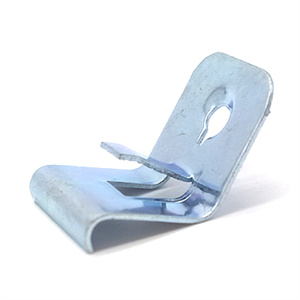The commonly used materials for Flat Springs are diverse, mainly depending on factors such as the application scenario, required mechanical properties, and cost of the spring. The following are some common flat spring materials:
Carbon steel: Carbon steel is one of the commonly used materials for flat springs, with good strength and elasticity, suitable for various conventional applications.
Stainless steel: Stainless steel has excellent corrosion resistance and weather resistance, especially suitable for flat springs used in humid and corrosive environments. Meanwhile, stainless steel also has good elasticity and strength.
Brass: Brass is a copper zinc alloy with good processing properties and conductivity, and is sometimes used to manufacture flat springs.
Phosphorus bronze: Phosphorus bronze is an alloy material with excellent elasticity, fatigue resistance, and corrosion resistance, suitable for manufacturing high-precision flat springs.
Beryllium copper: Beryllium copper is a highly conductive and elastic alloy material commonly used in the manufacture of high-performance flat springs.
In addition to the aforementioned materials, the manufacturing of flat springs may also involve other special alloys or composite materials to meet specific performance requirements. When selecting flat spring materials, it is necessary to comprehensively consider factors such as elasticity, strength, corrosion resistance, wear resistance, cost, and processing technology. Work closely with suppliers and engineers to select the most suitable materials based on specific application requirements and working environment to ensure the performance and reliability of flat springs.
